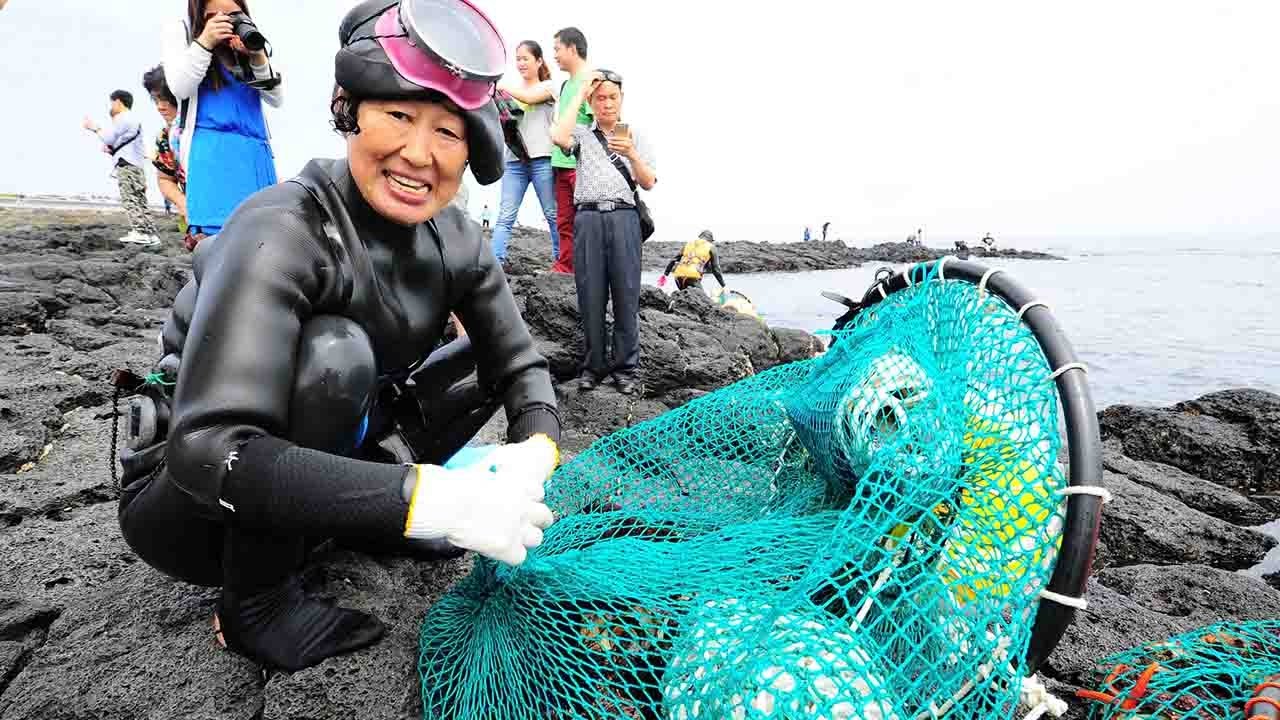SOUTH KOREA: In South Korea, Jeju Island, it appears that mermaids may be real. Well, almost real.
The Haenyeo divers of South Korea have been called that for their ability to free dive without oxygen.
These women can hold their breath for minutes on end as they dive into the sea countless times a day. The reason for doing so is to harvest seafood.
An average day for these women starts at 6am. They start diving, they go down, hold their breath for a couple of minutes, come back up and then dive down again. They do this between 100 and 300 times.
But these women’s lifestyle may soon be gone as they age into their 60s, 70s and 80s and the newer generation have no interest in keeping up this tradition and way of life.
Fascinated by their lives, US-Korean filmmaker Sue Kim is collaborating with female education advocate and Nobel Peace Prize winner Malala Yousafazai to share the story of these divers.
Malala who produced the film said, “I was so shocked that I did not know about the haenyeo, like so many people did not know, I said yes straight away.”
How South Korea’s ‘real-life mermaids’ made Malala want to learn to swim #KOREA #Lebanon,_Tennessee #Seoul #South #South_Korea #WANT https://t.co/Kllf5nEzBa
— IdeallyaNews (@IdeallyaNews) October 11, 2024
Kim said that she first came across these women as a child when she was on holiday in South Korea.
”I was so struck by them for the same reasons that you see in the film – they were so incredibly bold and vibrant and confident. They were also loud… fighting and laughing, and they just gave off this very big energy and occupied their space so unapologetically.
”I just fell in love with that entire vibe and big energy when I was a little girl. And so I grew up staying fascinated with them. They were a version of Korean womanhood that I was inspired by and wanted to emulate,” said Kim.
Kim said the documentary was difficult to make because it was hard to access the community, which was very insular.
”They’re rural communities that live in fishing villages. They don’t interact with the cities of Jeju much.”
A big part of the film focuses on women’s protest against the radioactive water from Japan’s Fukushima plant being released into the ocean as Jeju island borders Japan.
In general, there are regulations in place about what type of seafood they are allowed to harvest. This helps to guard the ecosystem.
“When a girl is watching this documentary, I want her to believe in herself and realise that she can do anything. She can stay under the water for two or three minutes without oxygen. And of course I still have to take some swimming classes to learn how to swim! I’m at point zero, but it has inspired me to consider swimming,” said Malala

